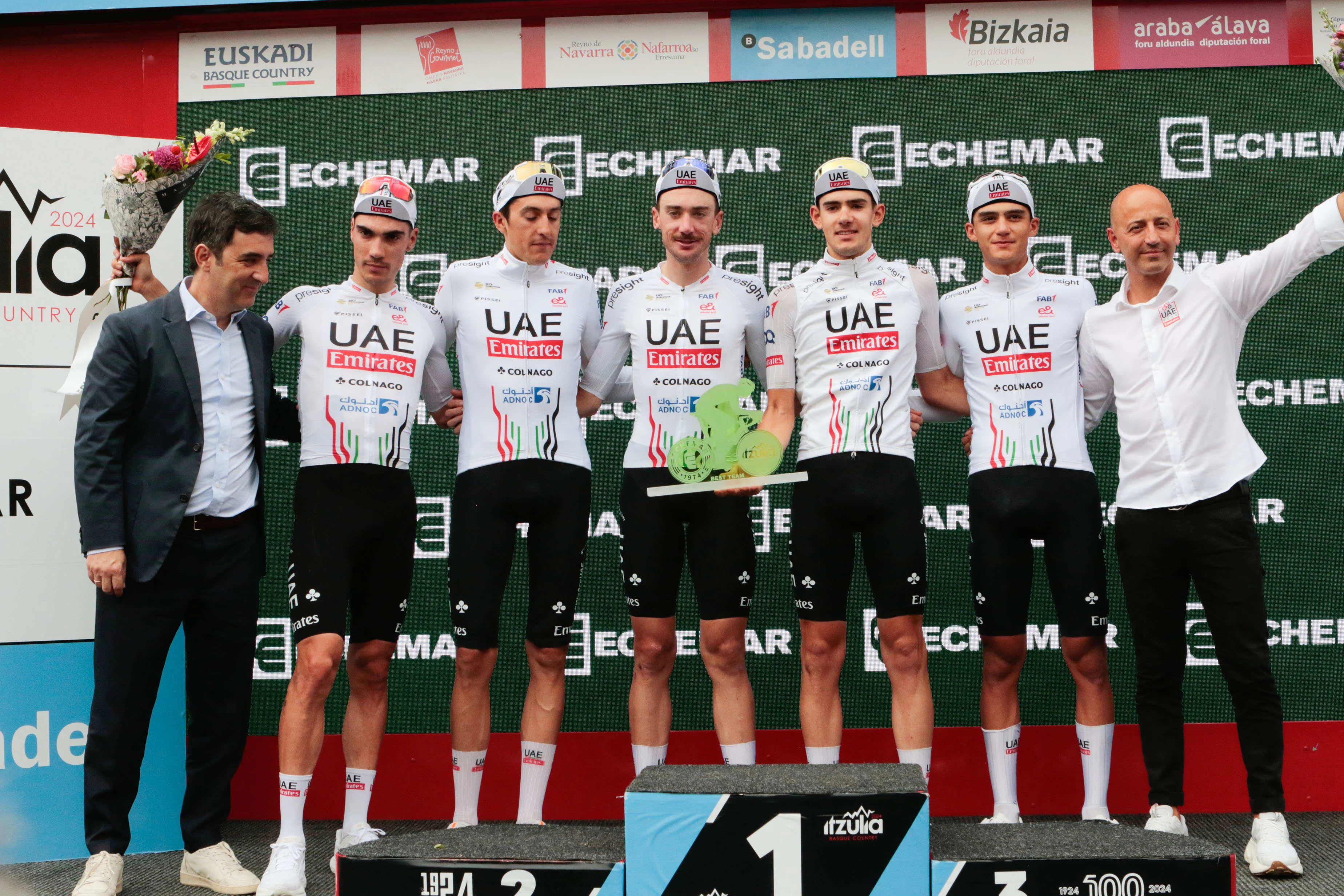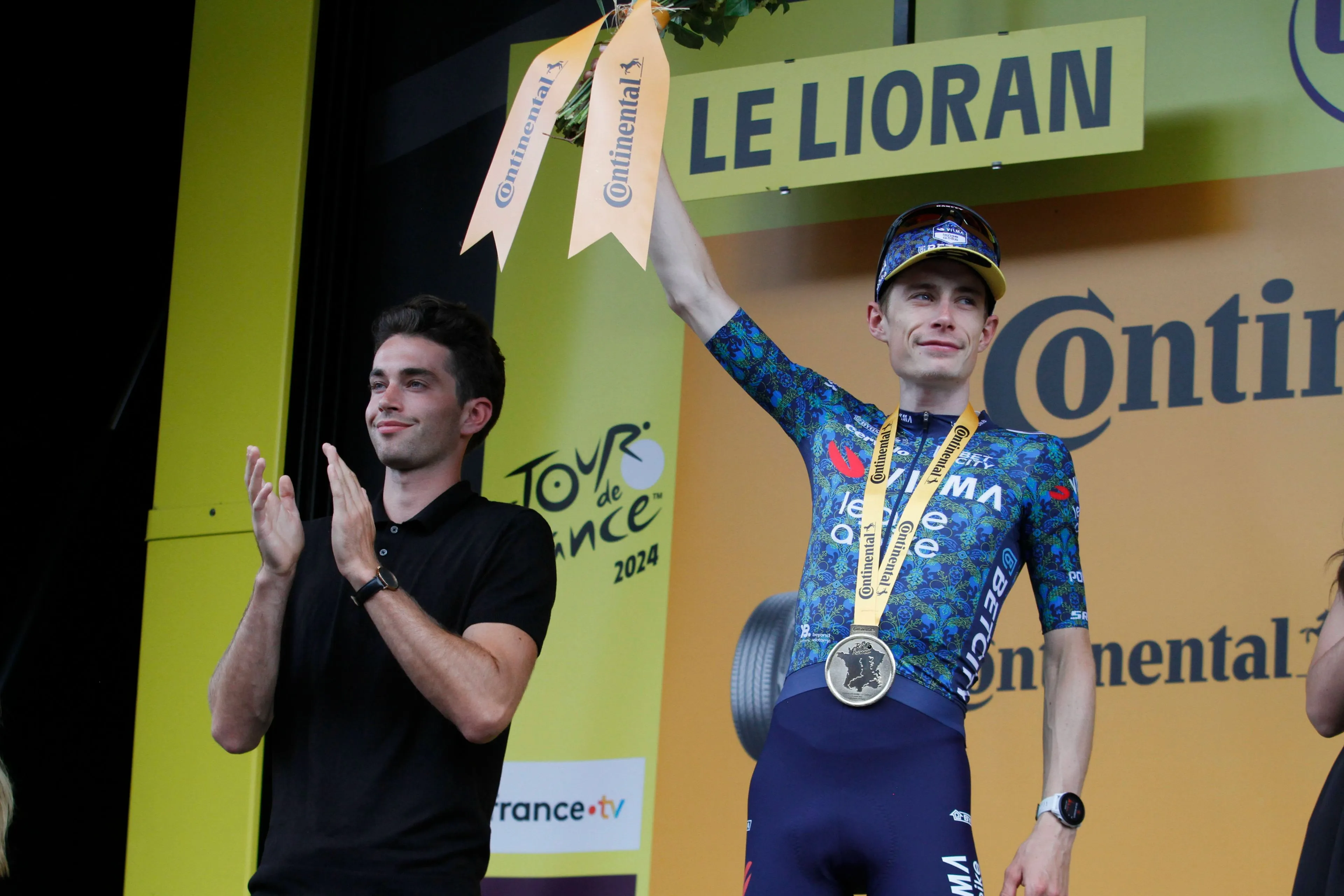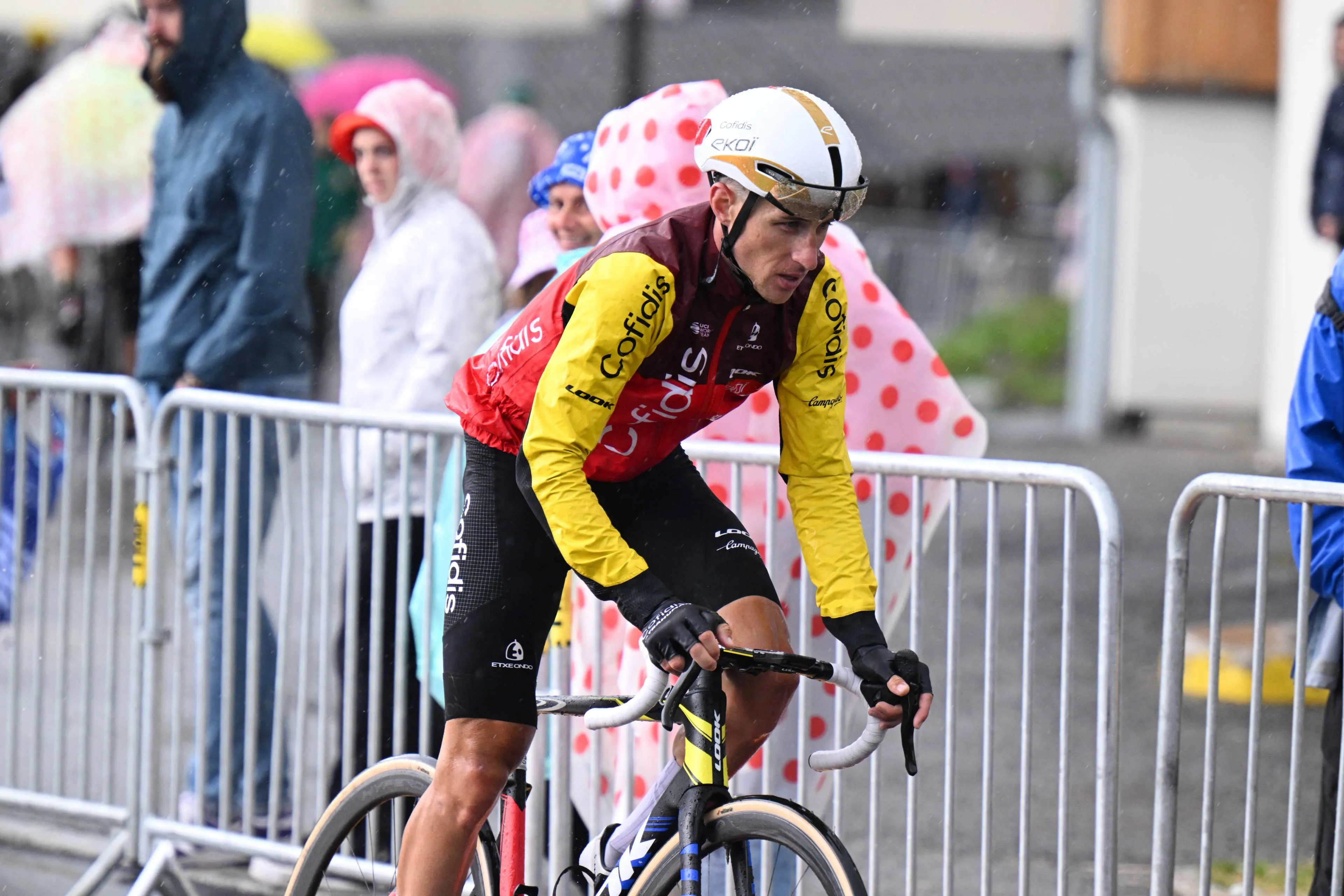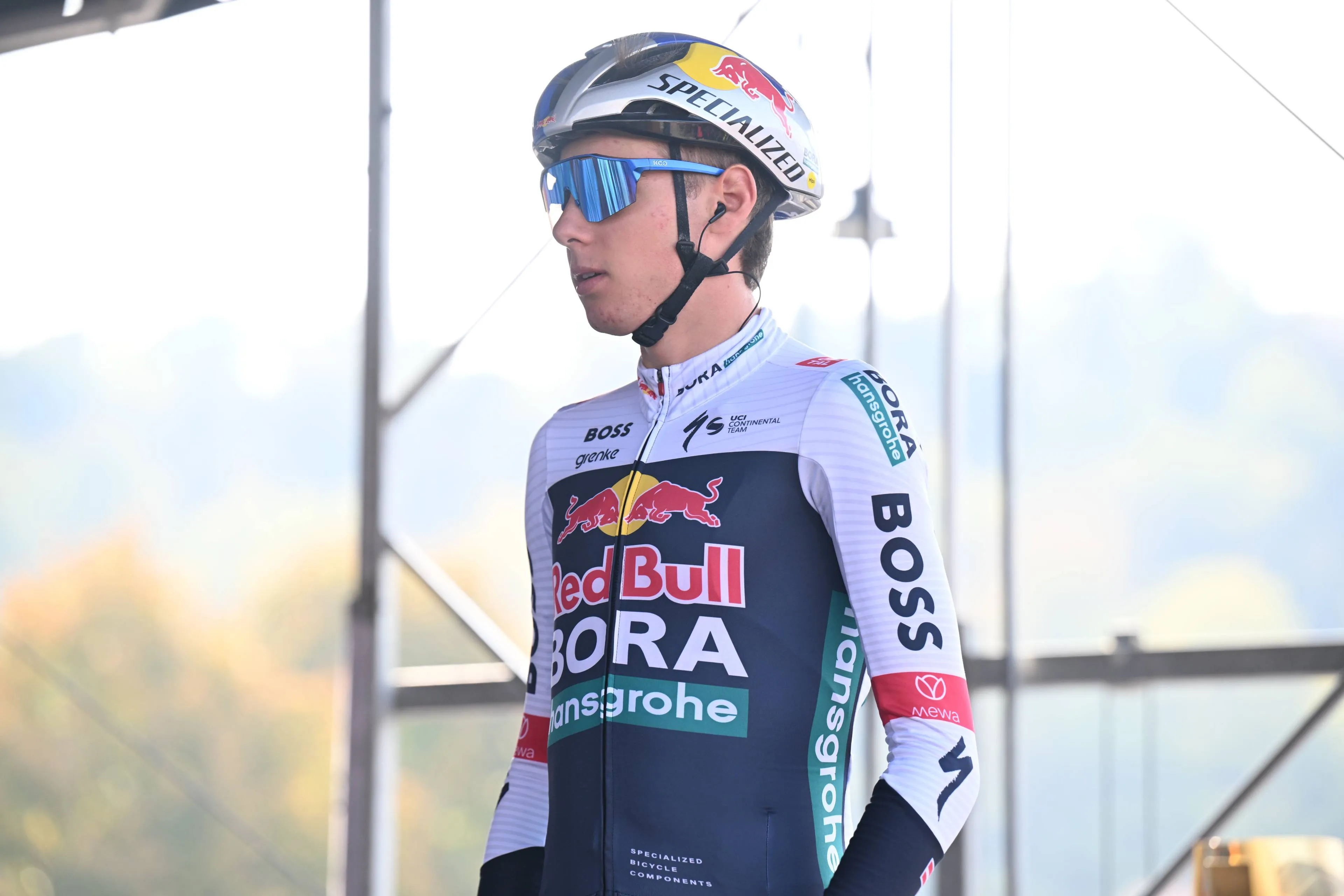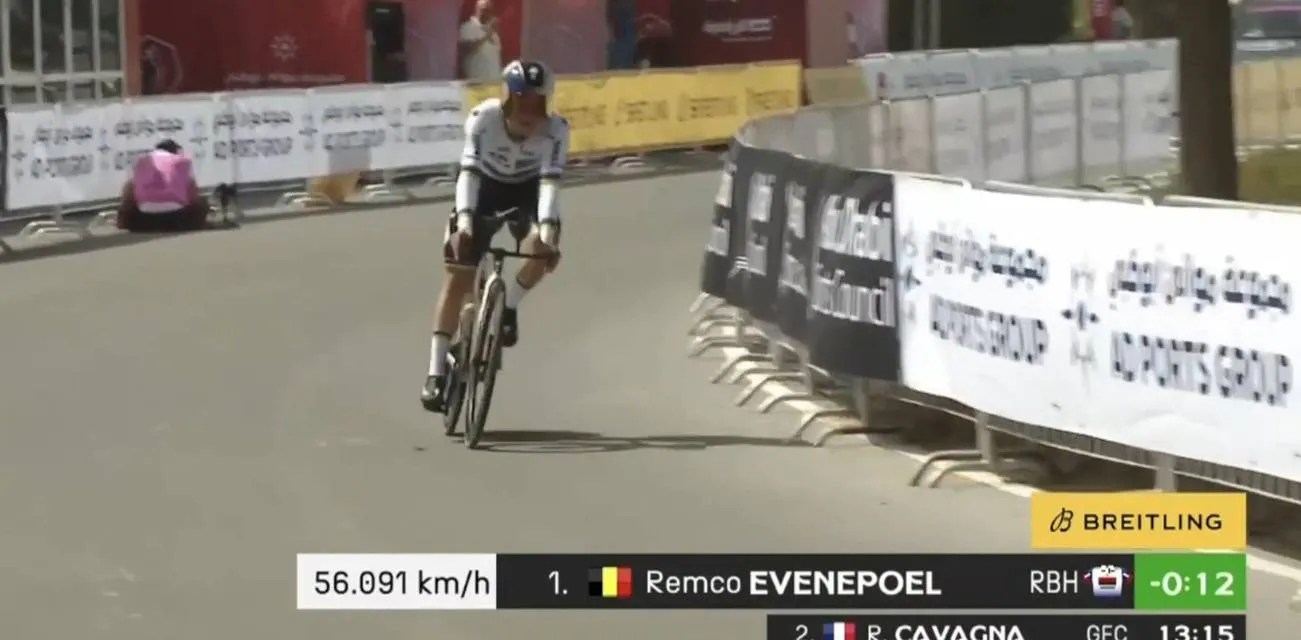Pedal Punditry #16 - Top 5 rivalries of 2010's road cycling (Froome, Contador, Quintana, Valverde, Cancellara, Boonen, etc.)
CyclingMonday, 02 December 2024 at 14:08

Looking back at the history of cycling you find rivalries such as those between Gino Bartali and Fausto Coppi; Greg Lemond and Laurent Fignon; and many others... But historic rivalries are not just a thing of the past, modern cycling continues to deliver major storylines that develop over years. We take a look at some of those that have marked the 2010's.
This is, of course, a subjective view on these rivalries and the truth is there are many more memorable instances in cycling, including in the women's field, MTB and needless to say, Mathieu van der Poel and Wout van Aert's Cyclocross battles. However this is based on my personal experience of the sport, as someone who became a hard-hitting fan in the early 2010's and had men's road cycling as the discipline I was first exposed to, and the cornerstone of my passion for the sport.
Read also
1. Chris Froome vs. Alberto Contador (2013-2017)
s
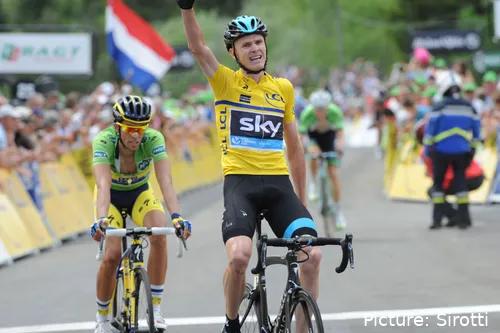
Chris Froome beat Alberto Contador at the Col du Béal, Criterium du Dauphiné 2014. @Sirotti
Without a doubt two of the best Grand Tour specialists in the history of the sport, and two who have battled with each other on many occasions. On a few, Contador was not at his best level whilst Froome had hit his peak... However we still got to see these two go head-to-head on several occasions at their very best level. The 2012 Vuelta was the first time that they would do this, but it was from the 2013 Tour of Oman that they'd bump heads directly against each other, the famous 2013 edition had a better startlist than most Grand Tours... Joaquim Rodríguez had won the queen stage to green mountain but the next day Froome and Contador allied to raid the race, with Froome taking the stage and GC win ahead of the Spaniard. At Tirreno-Adriatico Froome won ahead of Nibali and Contador at Prati di Tivo but Nibali defeated both with his own raid in the hills of the following days.... At the Criterium du Dauphiné the two faced off at Valmorel, above the competition, and had an explosive battle where Froome came out on top again en route to win the GC and then the Tour de France where Contador was not at his best.
The 2014 Criterium du Dauphiné was a prime race in modern cycling. Froome won the opening time-trial ahead of Contador and on stage 2 to the Col du Béal the two beat each other up as if it was a boxing match. The 'consistent pace' Froome revealed his new acceleration power and dealt several attacks which Contador would match, before launching his own. The stage ended in a thrilling uphill sprint with Froome taking the win. On stage 7 to Finhaut-Émosson Contador turned the tables and on the brutal summit finish he cracked Froome to gain back time and the yellow jersey. But their rivalry would soon turn the race on it's head, as they focused on each other during stage 8 whilst several rivals raided the race early on. Contador would lose the GC to Andrew Talansky whilst Froome fell out of the Top10. Both were among the main favourites to win the Tour de France alongside Vincenzo Nibali, but both crashed out and then geared up towards the Vuelta a España.
Here Contador was in his home terrain, Nairo Quintana crashed out whilst leading the race in the time-trial, and then Alejandro Valverde and Joaquim Rodríguez were present again as huge threats alongside Froome, just as in 2012. But this time it would be Froome that would surge as the main rival, in La Farrapona on stage 16 he dropped the pure climbers but then was dropped by Contador himself in the final kilometers. But on stage 18 to Monte Castrove, a small climb, Froome would take 12 seconds plus bonifications on Contador, closing the gap to 1:19 minutes ahead of the final mountain stage. Froome attacked countless times but could not crack the Spaniard, who eventually won the overall classification.
The 2015 Vuelta a Andalucia was another insanely exciting race, with Alberto Contador attacking the very steep Alto de Hazallanas right from the very bottom and winning the stage distancing Froome; but the next day Team Sky took control of the final climb and then Froome's attack was powerful enough to drop the Spaniard and win enough time to conquer the overall classification - whilst both were, in both stages, far above the rest. They'd have other battles, but at the 2016 Vuelta a España Contador dealt a killer blow to Froome. Not directly, but on stage 15 to Aramón Formigal Contador allied with Nairo Quintana to raid the race from the start, and this attack allowed the Colombian to extend his red jersey lead over Froome just enough to defend it in the upcoming time-trial, which proved key in deciding the final classification.
In 2017 they still faced off at the Volta a Catalunya quite well, alongside Alejandro Valverde, and at the Vuelta a España Contador would retire from the sport. Although he was nowhere near Froome in the GC, he won the final summit finish at the Alto de l'Angliru whilst Froome conquered the red jersey - an appropriate finale for such an iconic rivalry.
Read also
2. Alberto Contador vs. Alejandro Valverde vs. Joaquim Rodríguez - Vuelta a España 2012
Alberto Contador, Alejandro Valverde and Joaquim Rodríguez were among Spain's best riders of the 21st century, the first two without a doubt of it's history as well. Between themselves they have raced a whole 33 times the Vuelta a España and the truth is that over the years we've seen many battles between the three, or between two of the three riders. Without a doubt outside of 2012 there were great moments, but specifically the 2012 Vuelta a España was a race to remember. After a Tour de France dominated by Team Sky where there was anything but aggressive racing, the Vuelta popped off to be the most exciting Grand Tour of the year.
Three riders of similar ability, Contador being the best time-trialist but not as explosive of a climber/sprinter as his two rivals. In a race packed with explosive finishes and bonifications, this moved the scale towards his two rivals. On the first summit finish of the race at the Alto de Arrate the three were equally matched with Valverde taking the win, with Chris Froome also in the battle - the Briton would be there, but not quite as strong as the home riders. Valverde was the leader but lost it the next day after a mishap before the final gentle climb to Valdezcaray. Stage 6 saw another explosive summit finish with Rodríguez sprinting to victory taking some time on all three of his rivals whilst leading the race - as the weakest time-trialist, he had to attack despite being ahead of the competition. Stage 8 to Collada de la Gallina saw a brilliant finale with Froome bringing back an attack from Valverde, Froome attacking with Contador and distancing the rest... They were caught and attacked each other left and right, and the stage was won by Valverde who together with Rodríguez sprinted over Contador who had attacked in the very final meters. Stage 9 to Barcelona saw red jersey Rodríguez attack with Philippe Gilbert to win more key time to his rivals on the Alto de Montjuic.
But on stage 11 the time-trial shook things up. But Rodríguez' aggressive racing saw him keep the lead by a mere 1 second over Contador, whilst Froome stood only 15 seconds behind and Valverde 58 - lost on stage 4 mostly. At the insanely steep Mirador de Ézaro on stage 12 we had another extraordinary battle, but on the gruesome gradients it was red jersey Rodríguez who stormed to victory again, putting himself as the man to beat as there was no more time-trialing to race. On stage 14 the race entered the Asturias where it became legendary. On the first summit finish the three Spaniards showed incredible legs, with Froome struggling and both testing Rodríguez. But the leader caught Alberto Contador's attack inside the final kilometer and sprinted to victory again. The next day at Lagos de Covadonga rinse and repeat, the three attacked each other relentlessly but could not distance each other - whilst they did gain time on the rest, despite the start-stop attacks.
The stage 16 summit finish to Cuitu Negru was the epitome of this battle, with the three once again going head-to-head over the final ascent with all-out attacks from early on. This was before the final incredibly steep gradients where the fighting continued, and Rodríguez sprinted to a few more seconds at the line. 28 seconds over Contador and 2:04 minutes over Valverde at this point, and a likely GC victory as he looked to resist every single attack in the mountains. But on stage 17, the easiest of the days in the mountain range, everything was changed on it's head as Contador attacked before the climb and joined a combination of teammates and friends that had been in the day's breakaway. In the final climb then Valverde attacked Rodríguez and went in pursuit of Contador who would go on to win the stage, but the Katusha rider lost 2:38 minutes on the road and the race lead to Contador. Both would win back a few seconds on Contador on stage 19's hilltop finish at La Lastrilla, and then in the final stage 20 Rodríguez attacked Contador and put significant time into 'El Pistolero'... 44 seconds, but it was not enough to close the gap that had opened a few days prior.
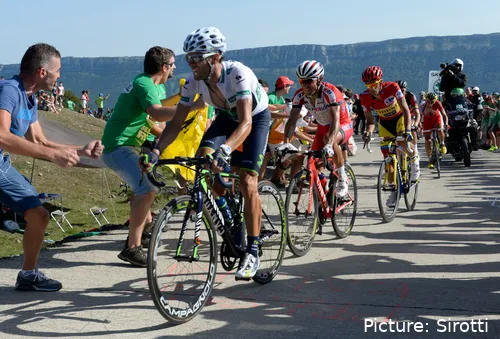
Read also
3. Fabian Cancellara vs. Tom Boonen (2006-2010)
One of the biggest battles of classics riders in the history of the sport, but surprisingly one that doesn't have too many direct instances. Both these riders are highly regarded as some of the very best specialists in this kind of racing, and raced in the same era. On his part, Fabian Cancellara has won the Tour of Flanders on three occasions and Paris-Roubaix on three occasions. In 2010 he did the double - besides taking wins in several other cobbled classics and Milano-Sanremo throughout his prime years. Tom Boonen in the meantime won Paris-Roubaix four times, Tour of Flanders and Gent-Wevelgem three times, but also the iconic E3 Saxo Classic a whole five occasions (including four consecutive triumphs from 2004 to 2007).
When purely discussing the cobbled races, it's far to say Boonen has the upper hand slightly, however their direct battles actually favour the Swiss rider. Boonen won both cobbled monuments in 2005 and Cancellara was 8th in Roubaix that year. In 2016 they were matched as Boonen won Flanders with Cancellara sixth, but in Roubaix Cancellara soloed to a brilliant win.
In 2007 Boonen outsprinted his rival to win E3, and then in 2008 he used his top speed to win Roubaix against Cancellara when the two went head-to-head. But it was in 2010 that they've had their most iconic battles. Both on their prime form, at the E3 Harelbeke classic they headed towards the finale in a group of 3. Cancellara knew of the risk of taking Boonen to the sprint, but with a late attack before the final kilometer he distanced the Belgian and Juan Antonio Flecha and had a spectacular triumph. Two weeks later Cancellara and Boonen gritted teeth and battled for their pride at the Tour of Flanders, where Cancellara proved to be the strongest, dropping Boonen on the iconic Muur de Geraardsbergen to victory, one of the most iconic moments in modern cycling history - he then again won Paris-Roubaix whilst Boonen finished fifth. This wouldn't be the final time they faced each other, both contested for the classics until 2016 together, but it was certainly the prime of an historic battle.
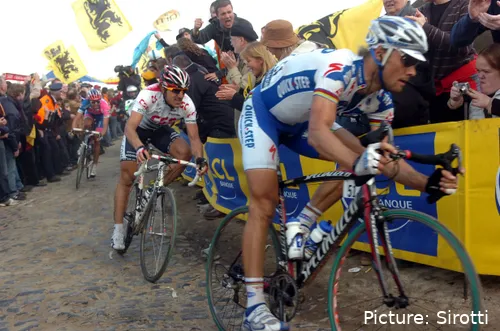
Tom Boonen and Fabian Cancellara together during the 2008 Paris-Roubaix. @Sirotti
Read also
4. Julian Alaphilippe vs. Jakob Fuglsang (2019)
s
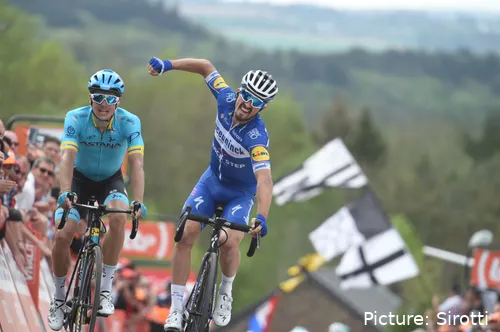
Julian Alaphilippe and Jakob Fuglsang battle for Flèche Wallone victory in 2019. @Sirotti
Perhaps an underated rivalry, but definitely one that should not be forgotten. In 2019 and 2020 we had a brilliant set of battles between Julian Alaphilippe (the explosive, passionate puncheur who was a fan-favourite and a strong sprinter) and Jakob Fuglsang who began to focus on the classics and with immense success, having the advantage in the tougher ones due to his previous specialty as a climber. In 2019 we were spoiled with an incredible rivalry with the two, beginning at Strade Bianche where the two were the strongest above everyone else, and then sprinted up the Via Santa Caterina where Alaphilippe was the strongest and won. At Amstel Gold Race the two were the strongest again and dropped the competition in the hilly terrain, but knowing he'd be beaten in a sprint, Fuglsang played tactically in the end not working, and because of this both were brought back and gave way to Mathieu van der Poel's memorable win.
At Fléche Wallonne a few days later we had another head-to-head, with Fuglsang attacking the Mur de Huy early so as to deplete Alaphilippe of his explosivity. It almost looked like the tactic was set to work, but the Frenchman held the wheel and overtook the Dane at the line. But Fuglsang would get his revenge in the next weekend, soaring to a solo victory at Liège-Bastogne-Liège whereas Alaphilippe struggled to match him in the climbs.
This would be a memorable year, the two then focused on different goals largely from 2020 onwards but at the Imola World Championships we still saw another battle. Alaphilippe attacked towards victory at the Cima Gallisterna and was able to hold back a chasing Fuglsang up the steep climb.
Read also
5. Chris Froome vs. Nairo Quintana (2013-2017)
s
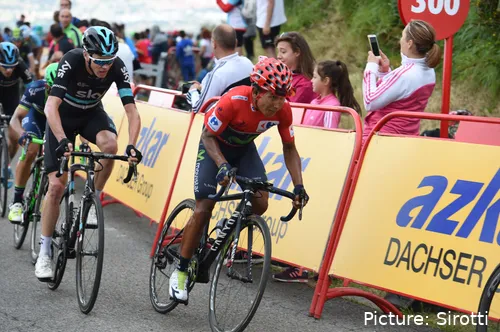
After being beaten twice at the Tour de France, Nairo Quintana beat Chris Froome at the 2016 Vuelta a España. @Sirotti
The ultimate Tour de France battle of the 2010's, in my opinion. We've had the Andy Schleck years where he battled against quality time-trialists such as Alberto Contador and Cadel Evans; a great 2019 edition where a youngster Egan Bernal rode to his first Grand Tour win, which in their own are great editions of the race (2011 and 2019 specifically). What marked the 2010's however was Team Sky's dominance, their leadout trains demolishing pelotons throughout the mountains, but there was one year, 2015, where Chris Froome and the 'death star' was almost beaten by the purest of climbers: Nairo Quintana. A small rider from Colombia, Quintana broke through in 2012 and the next year he was second at the Tour behind Chris Froome. However this was far from a close battle, and Froome was mostly in control to win his first Tour. Quintana also finished third to Froome at the 2016 Tour de France, but it was one edition f the race that really proved itself above others.
In 2015 Froome was returning after crashing out in 2014, and Quintana had come from a Giro win in 2014. It was a pure TT-specialist vs pure climber duel, but the Movistar rider actually had the upper hand when racing uphill. The two had won many stage-races throughout the years, and entered the 2015 Tour at their best. On the hilly and explosive terrain of the first week Froome won almost 2 minutes on the Colombian, and then another minute on the first mountain stage to La Pierre-Saint-Martin. However the tide would begin to turn later, and Quntana would attack Froome from stage 14 onwards. Into the Alps, Quintana began to look like a threat despite the 3-minute disadvantage, but this began to come down. On stage 19 Quintana used the high mountains and summit finish at La Toussuire to repeatedly attack Froome and crack him, taking 30 seconds on the yellow jersey whilst gaining almost 2 minutes on the rest of the competition. A clear sign of the terrain that suited him best, and that he had the chance to still take the overall classification.
Read also
This peaked on stage 20 as Alejandro Valverde attacked on the Col de la Croix de Fer and then Quintana attacked almost 60 kilometers away from the finish, dropping Froome and bridging across to his teammate. Froome battle for his life and closed the gap on the descent, but on the Alpe d'Huez Quintana attacked right from the bottom again and the Team Sky train could not match the Colombian who was on fire. Quintana had teammate in the head of the race, was completely unmatched and won 1:20 minutes on a struggling Froome, but ultimately the Briton managed to survive the flurry of attacks to win the race.
But at the 2016 Vuelta a España the two would have another brilliant battle. Froome, Quintana and Contador were the favourites to win the race. On stage 8 on the brutal slopes to La Camperona Quintana dealt a killer blow to take 33 seconds on the Briton and take the yellow jersey. At Lagos de Covadonga a few days later Quintana attacked again and won another 25 seconds (+ bonus seconds). On stage 11 the two battled up Peña Cabarga, reminiscent of Froome's battle with Juan José Cobo in 2011, but Froome would strike, winning the stage. Froome had time to take back and on stage 14 he was the one forced to attack at the Col du Aubisque, but Quintana matched him promptly. But with a long flat time-trial ahead, Quintana still had the pressure despite having the red jersey and was being unable to take more time on Froome.
Hence came stage 15 to Aragon Formigal, a seemingly gentle summit finish, but the day that decided the race. Quintana allied with 6th place Alberto Contador who had nothing to lose, and the two joined a large breakaway group with an all-out early attack, whilst Froome couldn't respond and didn't have his team with him. Total chaos benefited the Colombian, who gained 2:37 minutes on Froome on that day, joining the breakaway as the race leader - an insane risk, for most. Froome then took back 2:16 minutes on the time-trial, proving Quintana's decision had been the right one, but the Briton couldn't close down the 1:21 minute-gap on stage 20 to the Alto de Aitana, Quintana resisting and winning the overall classification.
claps 0visitors 0
Just in
Popular news
Latest comments
- Completly agree, Jan was in front of van gils, following Pidcock wheel, it was Van gils who tried to force his way through Jan and the barriers. Are they blaming Jan because he belongs to the richest team that win a lot?
 maria2024202418-02-2026
maria2024202418-02-2026 - Clickbait title, not reality-based. Yawn.itsent18-02-2026
- lame, but probably correctantipodeanpedalfan18-02-2026
- Van Gils rode like wanted to get crashed or way too over confident that he was going to overtake Jan before getting pinched. It was obvious were Jan was going/had to go and MVG had the whole road to give an inch so he would have a chance to overtake on the rightjad2918-02-2026
- Double book this showing with the Melania documentary and you might get 100 people to see it...total !frieders318-02-2026
- Simple solution...stay off the barriers since you might get closed out ! Christen's sprint was legal as he was trying to get into the slipstream of Pidcock.frieders318-02-2026
- I believe Remco now understands that he will have issues reaching the top step as long as Tadej is in the Tour, whiles he's a year junior to Tadej he has had his upper body rebuilt twice now from crashes over the last few years. I think he has a chance to win the Tour in a few more seasons, you can only prepare yourself as best you can and try. He said he needs to race some more one week stage races, he should, he can probably win them all. I also believe Remco should aim for another Vuelta if he comes out of the Tour in good form and maybe he should think about the Giro again for next season. This is potentially Tadej's fifth Tour win coming up this year, no one is going to derail that unless he falls off the bike or gets really sick.awp17-02-2026
- Not only will the great narcissist get his voice, but he'll benefit financially from this as well. Who says that cheating and lying your way to victory doesn't pay?
 santiagobenites17-02-2026
santiagobenites17-02-2026 - It'll make a good double feature with the Michael Jackson soft focus biopic.LumbarDeniro17-02-2026
- Yeah, whilst MVDP would never break a bone on the MTB... 😂Sexass17-02-2026
Loading
1 Comments
